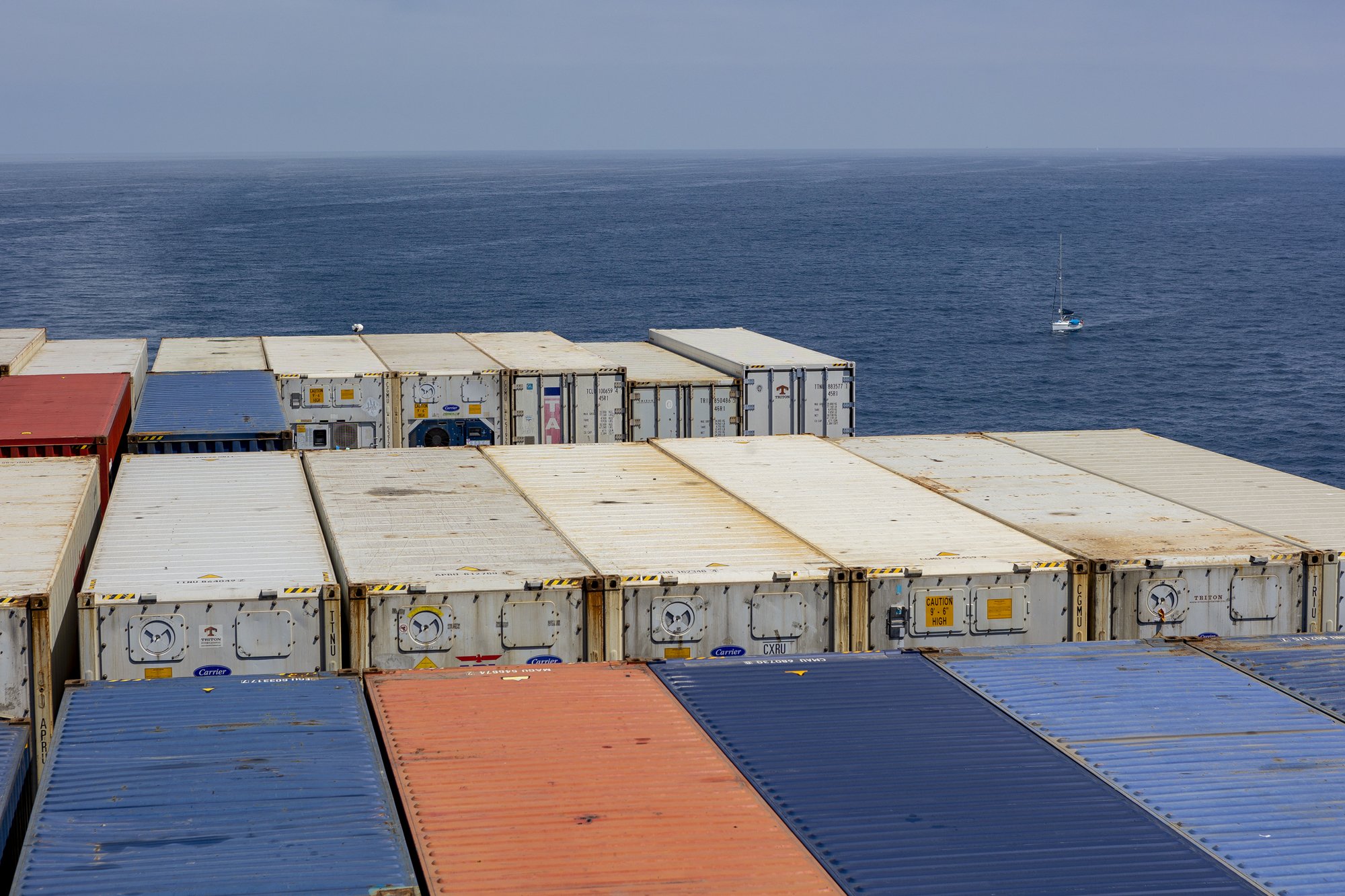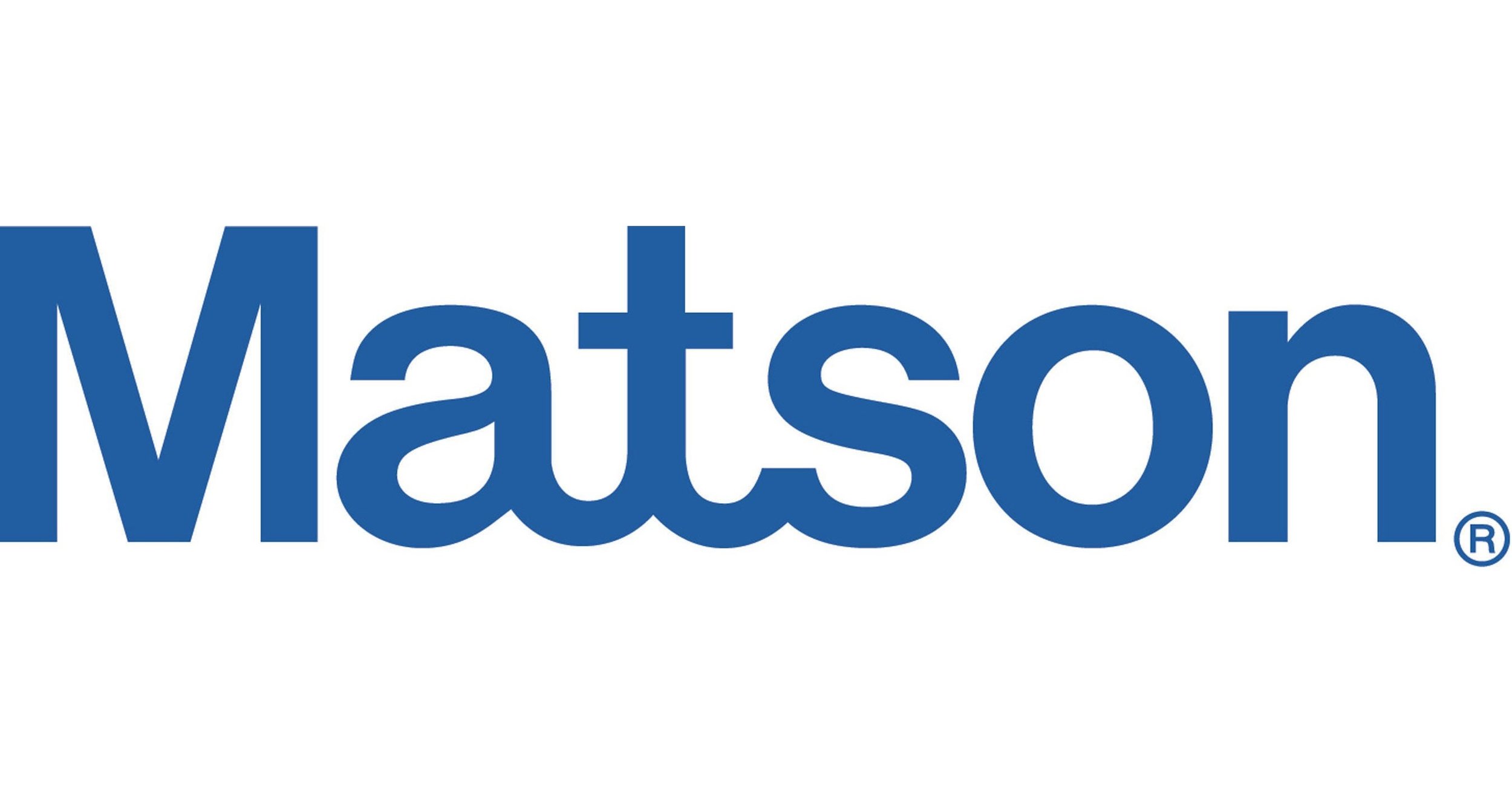
THE VITAL ECONOMIC IMPACT OF U.S. SHIPPING
Walk into any grocery store in Hawaii and you’ll find the wide variety of fresh vegetables, meats and dairy that consumers expect in the continental U.S. Big-box and local stores provide a constant selection of everything from apparel to hardware, while car dealerships showcase the latest models on their lot. How can these businesses reliably ensure their shelves are always stocked on a remote archipelago some 2,500 miles from the West Coast? They depend on U.S.-flagged shipping operators like Matson.The U.S. Marine Transportation System is an essential component of our economy. Consisting of 25,000 miles of coastal and inland waters and rivers serving 361 ports, and supporting $5.4 trillion in economic activity annually, it accounts for over 31 million American jobs. In addition to connecting the U.S. with the rest of the world, this system provides a vital lifeline to remote U.S. economies like Hawaii, Alaska, Puerto Rico, and Guam, where ocean-transported goods sustain the livelihoods of local residents and tourism industries.In the case of Honolulu, U.S.-flagged ships operated by companies like Matson arrive like clockwork at least three times every week, carrying thousands of containers of goods that are efficiently transferred to the stores, hotels and restaurants that keep the state’s economy moving. About Matson
Matson, Inc is a U.S. owned and operated transportation services company headquartered in Honolulu, Hawaii. A leader in Pacific shipping since 1882, subsidiary Maton Navigation Company, Inc. (Matson) provides a vital lifeline to the geographically remote economies of Hawaii, Alaska, Guam, Micronesia, and the South Pacific and premium, expedited services from China to the U.S. West Coast. The company’s fleet of vessels include containerships, combination container and roll-on/roll-off ships and custom-designed barges. The company’s Matson Logistics unit provides comprehensive freight logistics and supply chain services.
U.S. flag shipping companies are what allow this service to be so timely and dependable, enabling operators to specialize in smaller ships that are quick to unload and suit Hawaii’s market. Hawaii also benefits from the fact that Matson has exclusive use terminals at all three U.S. West Coast ports.Without U.S.-flagged shipping, these economies would be left to deal with shortages of goods, erratic price fluctuations, and undependable access to the products they rely on for daily living. Modes other than U.S. flag shipping simply can’t reliably meet the needs of consumers in remote states and territories. For one, air freight doesn’t have the capacity or cost-effectiveness to transport the volume of goods consumers demand. Secondly, without U.S. flag carriers’ consistent presence in these markets, foreign maritime carriers would subject consumers to the whims of non-dedicated service, with ships supplying commodities and goods on a schedule convenient to foreign-owned firms.The elevated instability and transport costs caused by the Covid-19 pandemic have made clear the value of domestic trade stability. A foreign-flagged company could undercut the competition, drive out American firms, and then raise prices once it establishes a monopoly. This would put the livelihoods and economic future of U.S. communities in the hands of firms that can’t be trusted to put the interests of Americans first.Helping remote states and territories isn’t the only way U.S.-flagged carriers promote our economic security — they are drivers of economic development across the nation, too. The American shipbuilding and repair industries create some 134,000 jobs nationwide and contribute around $60 billion to the economy per year, according to the U.S. Bureau of Labor Statistics. Policies that do more to promote them will further boost our economy.As an example, Matson recently invested nearly $1 billion in a Hawaii fleet renewal and terminal modernization project, including spending over $900 million to build four new vessels at Philadelphia and San Diego shipyards and $60 million to install new cranes at its Honolulu hub. The impact on job creation was vast: to build just one of those ships — the 870-foot long, 114 foot-wide Lurline — required 2,000 professionals working 150,000 man hours over the course of a year. The company also regularly employs more than 4,000 people in the U.S., from mariners to customer service employees to terminal and administrative staff.It’s clear that U.S.-flagged ocean carriers like Matson play a crucial role in economies and communities across the United States, proving essential to job creation and the prosperity of our country. This is something, quite simply, that we cannot afford to lose.
